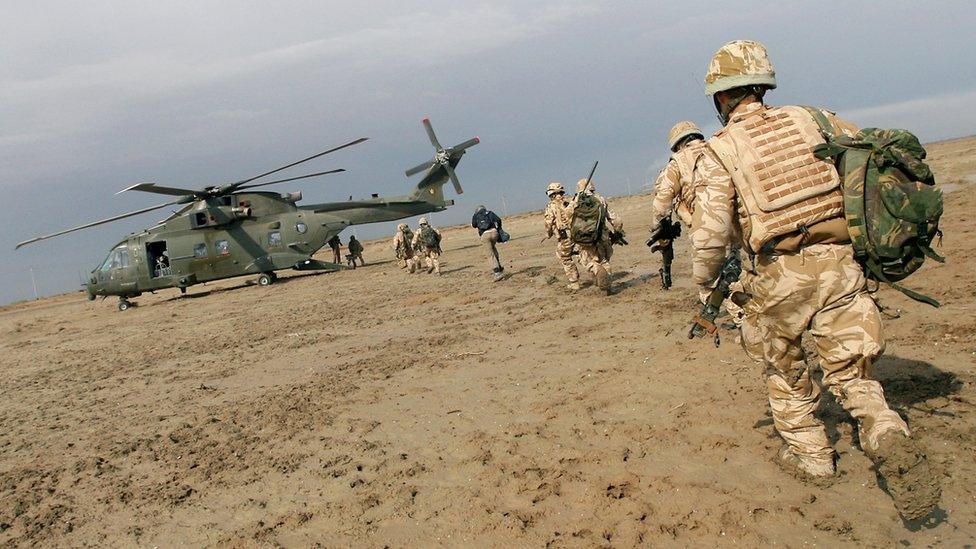UK troops to be protected from 'spurious legal claims'
- Published
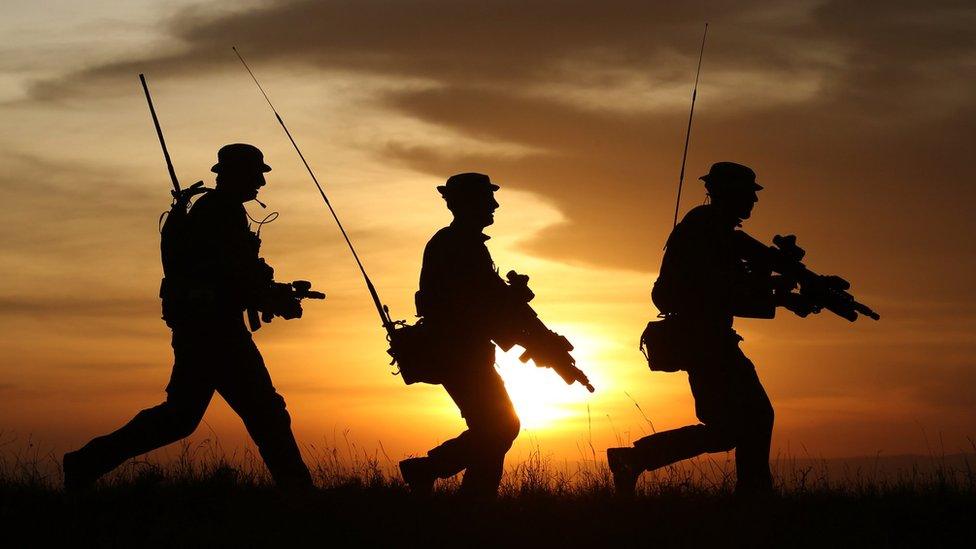
Legal measures to protect UK troops from "spurious" claims of misconduct have been unveiled by the government.
The change in policy, announced at the Conservative conference, would mean parts of the European Convention on Human Rights (ECHR) could be suspended during future conflicts.
Defence Secretary Michael Fallon said the legal system had been abused "to falsely accuse our armed forces".
The MoD has spent more than £100m on Iraq-related claims since 2004.
Speaking at the Tory conference in Birmingham, Mr Fallon said: "This is not about putting our armed forces above the law, they wouldn't want that. They have to comply with the criminal law of this country and, of course, with the Geneva conventions.
"Serious claims must be investigated, but spurious claims will be stopped and our armed forces will now be able to do their job fighting the enemy and not the lawyers."
Two separate inquiries are currently examining about 2,000 allegations against troops who served in Iraq and Afghanistan.
Much of the litigation comes from claims under the ECHR, the government said.
The changes would mean that in future conflicts, subject to a vote of both Houses of Parliament, the UK would "derogate" from Article Two (right to life) and Article Five (right to liberty) of the ECHR.
Troops would still be subject to other articles of the convention, including a prohibition on torture, and the changes would not affect retrospective cases.
The defence secretary explains how troops will be protected from "vexatious" legal claims
Prime Minister Theresa May told BBC Breakfast: "What we've seen is a whole industry of lawyers chasing after our troops and trying to bring claims against them, many of which are vexatious claims, and we want to put an end to that."
The former Conservative Attorney General Dominic Grieve welcomed the proposal, but said it was not a "magic formula" which would suddenly ensure British military personnel would not face claims in future.
'Absurd'
Conservative MP and former Army officer Thomas Tugendhat told Radio 4's Today programme the government was "restoring the appropriate law".
"To do otherwise would be to equate the beaches of Normandy to downtown Brighton and that would be absurd," he said.
But human rights lawyer Jocelyn Cockburn disagreed, telling Today she didn't think the government's decision would "protect soldiers from allegations of abuse".
She said the ability to suspend certain parts of the ECHR was "not a new or novel thing", and reiterated certain elements of the convention would still apply.
One example, she said, enabled lawyers to continue to pursue ongoing cases against the MoD in which it was accused of "failing to protect the right to life of soldiers by supplying inadequate equipment".
'Undermining soldiers'
There has been criticism of the scale of claims lodged using legal aid with the Iraq Historic Allegations Team (IHAT), which was set up to examine serious accusations following the 2003 invasion.
The team, headed up by former senior civilian police officer Mark Warwick, has considered at least 1,514 possible victims - of whom 280 are alleged to have been unlawfully killed.
The claims range from ill-treatment during detention to assault and death by shooting.
One of the most famous cases to be disproved was based on accusations that up to 20 Iraqis were killed and mutilated after a 2004 battle.
This led to the £34m Al-Sweady inquiry in 2014, which ruled the allegations were "deliberate lies" based on "reckless speculation".
But a number of cases have also been found to have merit - and in September, a judge condemned four UK soldiers who "forced" an Iraqi boy into a canal and let him drown.
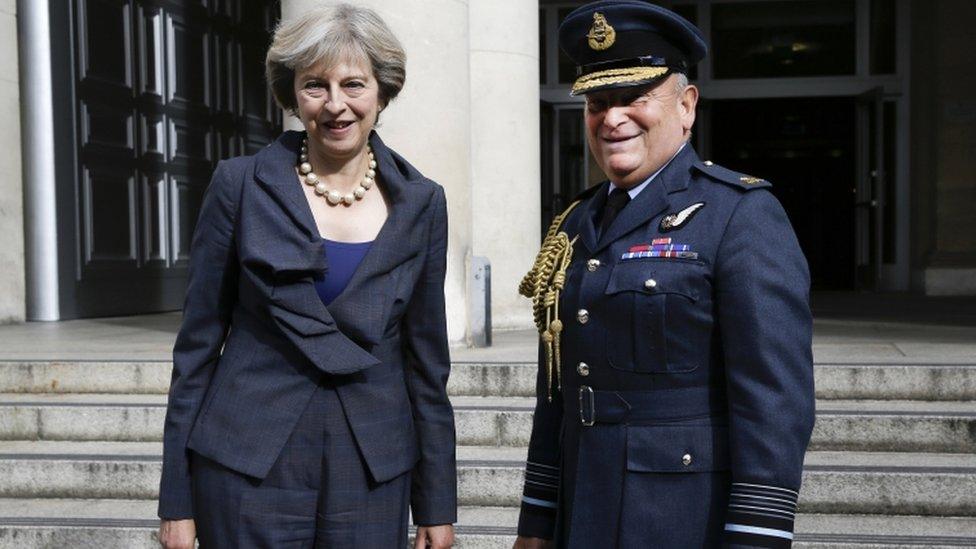
The prime minister recently discussed her concerns with the Chief of the Defence Staff Air Chief Marshal Stuart Peach and other senior military officers
The planned crackdown has been criticised by Lt Col Nicholas Mercer, the former chief legal adviser for the Army in Iraq, who said it was wrong "simply to polarise it as money-grabbing lawyers".
"There are plenty of us who have raised our concerns without any financial motive at all, if indeed the other lawyers have got a financial motive," he said in January.
"The government have paid out £20m for 326 cases to date. Anyone who has fought the MoD knows that they don't pay out for nothing."
It was also recently revealed that an independent policing unit set up to investigate alleged war crimes by British troops in Afghanistan had received around 600 complaints.
The cases being probed are said to include that of a Taliban bombmaker who claims his arrest and detention was illegal.
The move was welcomed by Reg Keys, whose 20-year-old son Tom was killed while guarding a police station in Iraq in 2003.
He has been involved in a campaign against the legal cases, and said: "I would like to think that those already under threat of prosecution will be looked at again".
For Labour, shadow defence secretary Clive Lewis said: "Michael Fallon's speech was a smokescreen, designed to deflect from the Tories legacy of failure on defence.
"The reality is their devastating cuts since 2010 have weakened and demoralised our Armed Forces, leaving them poorly-equipped, over-stretched, under-paid and too often living in squalid conditions."
- Published4 October 2016
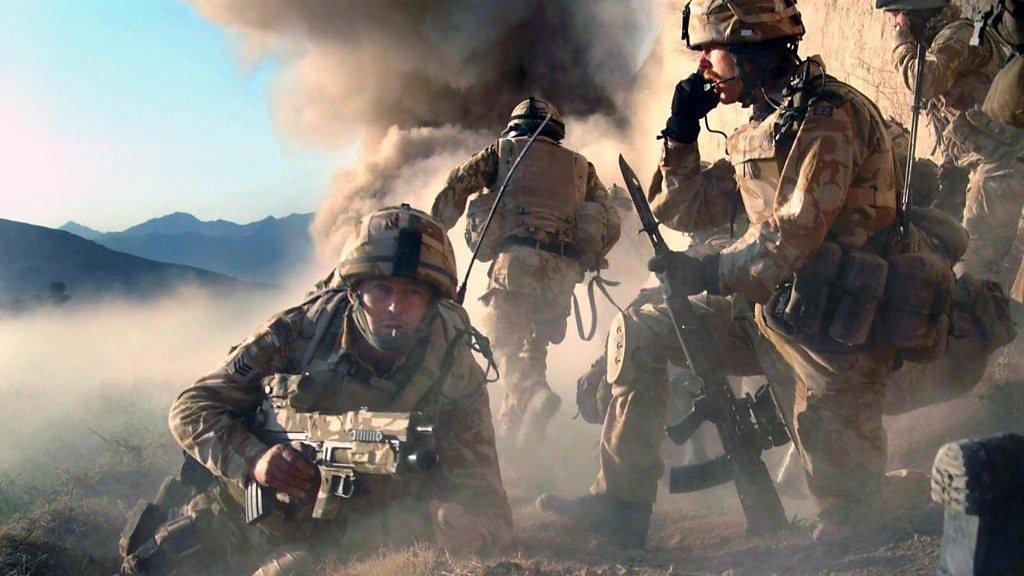
- Published23 September 2016
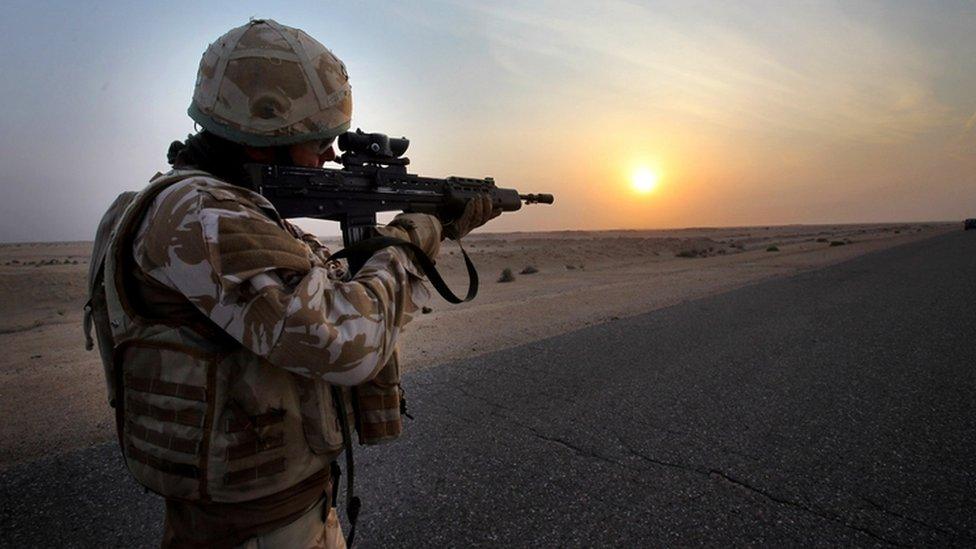
- Published22 September 2016
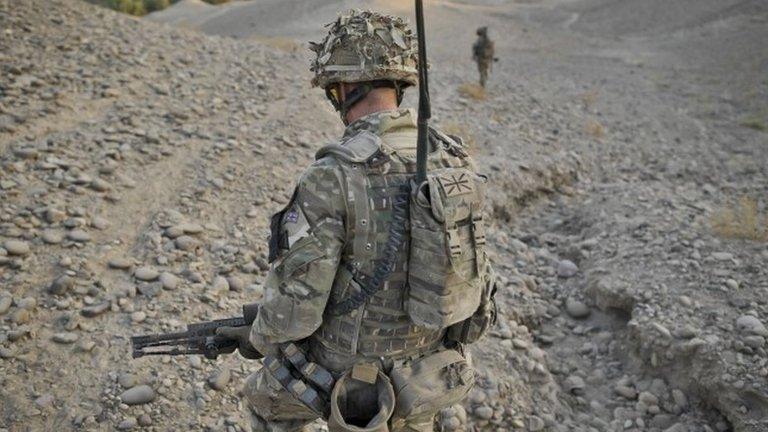
- Published21 September 2016
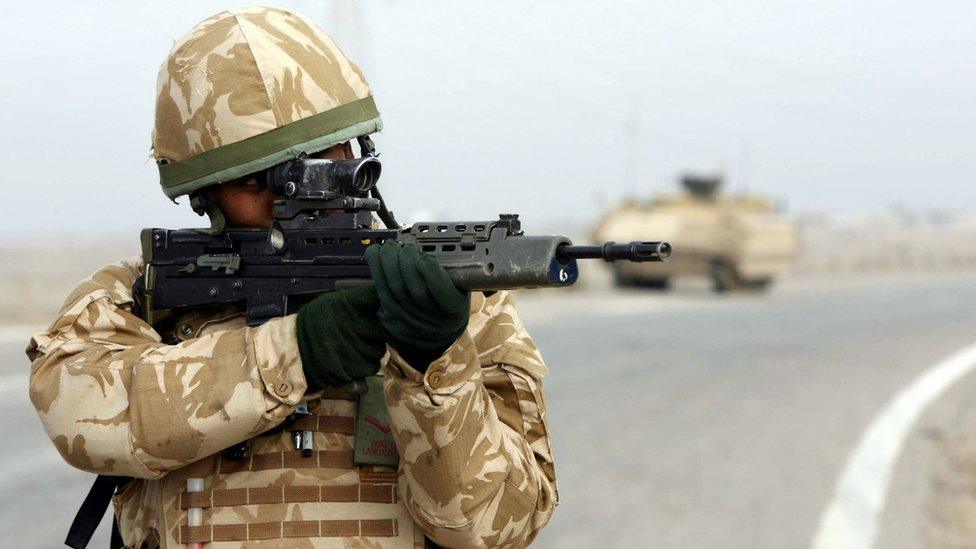
- Published15 August 2016
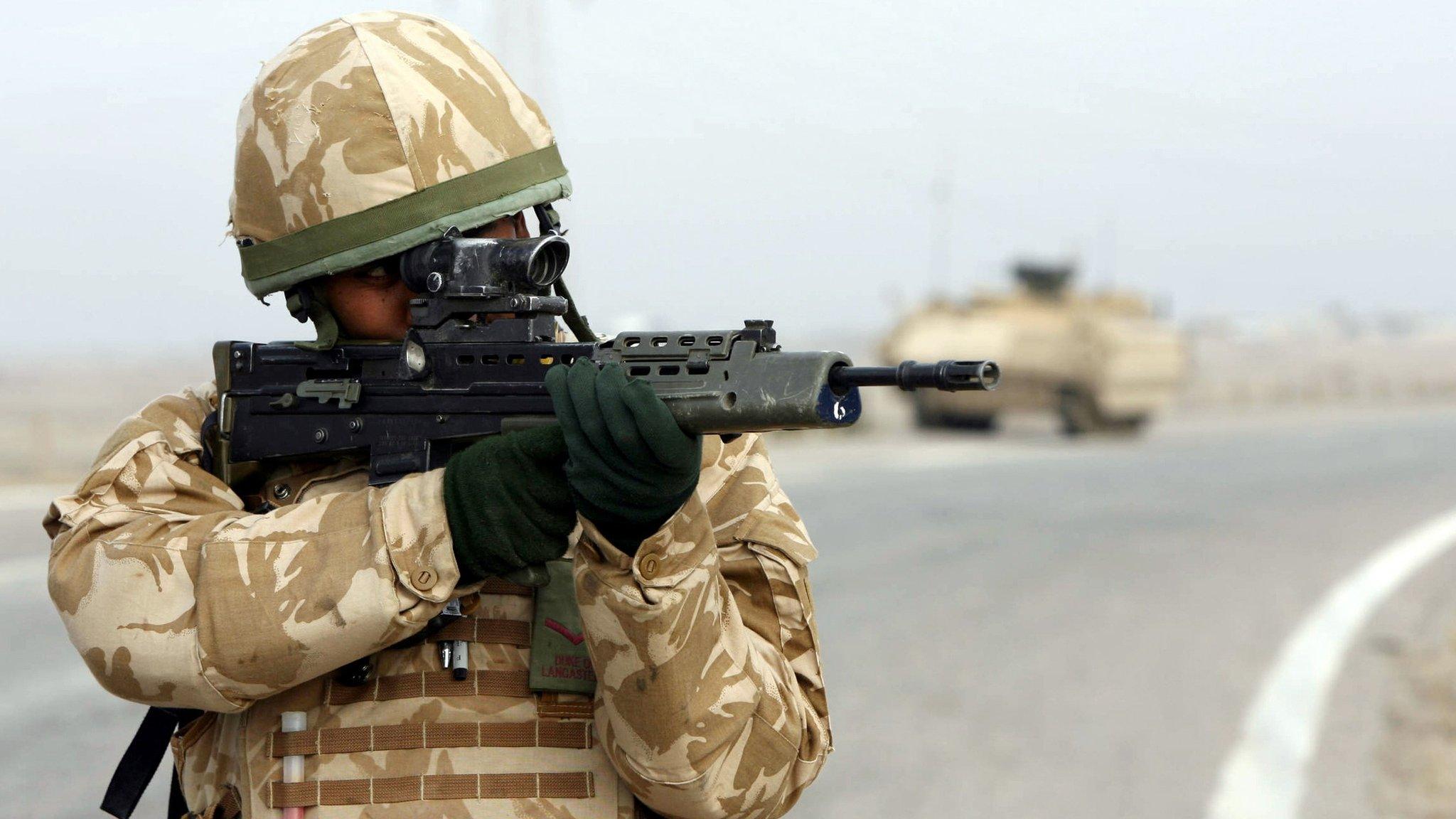
- Published22 January 2016
